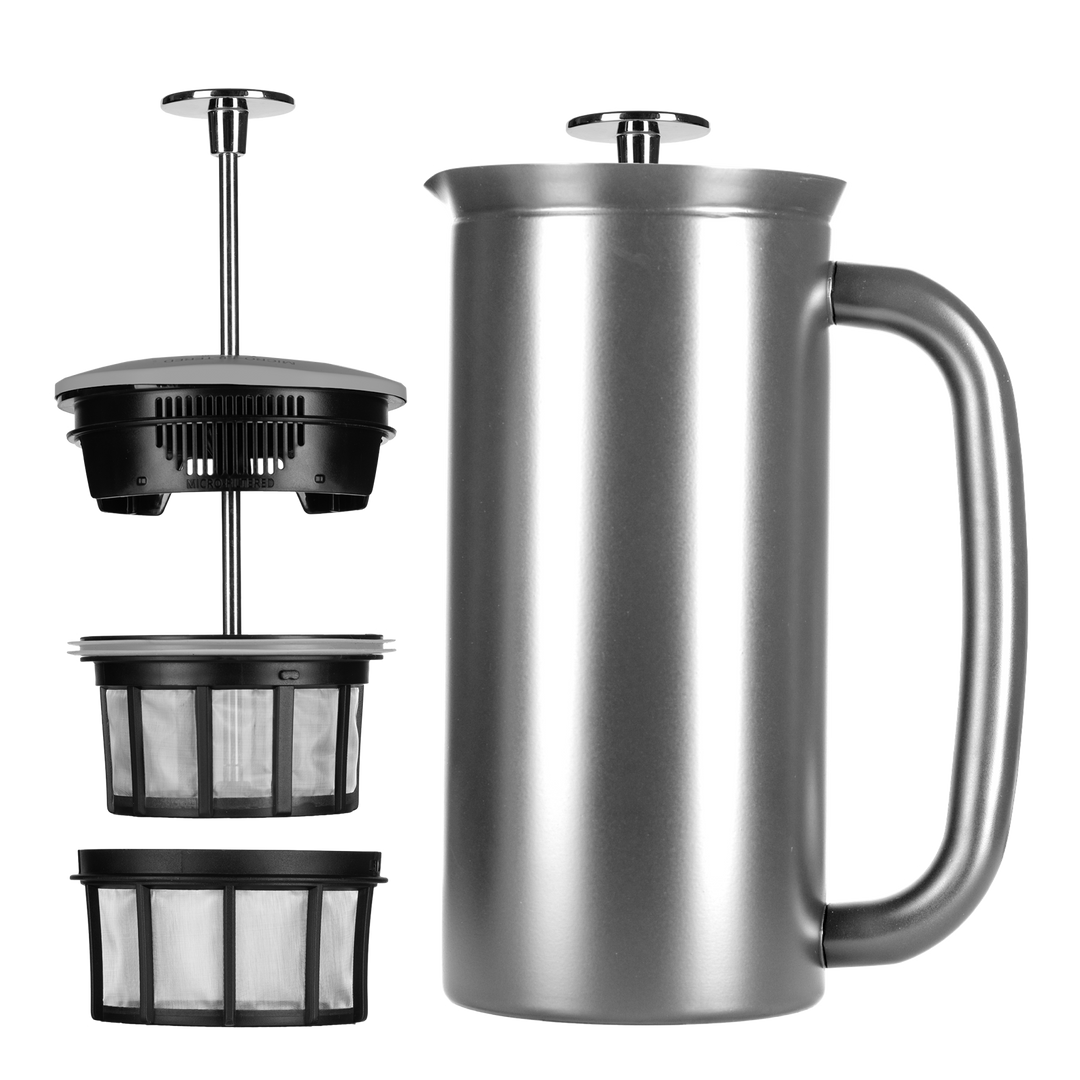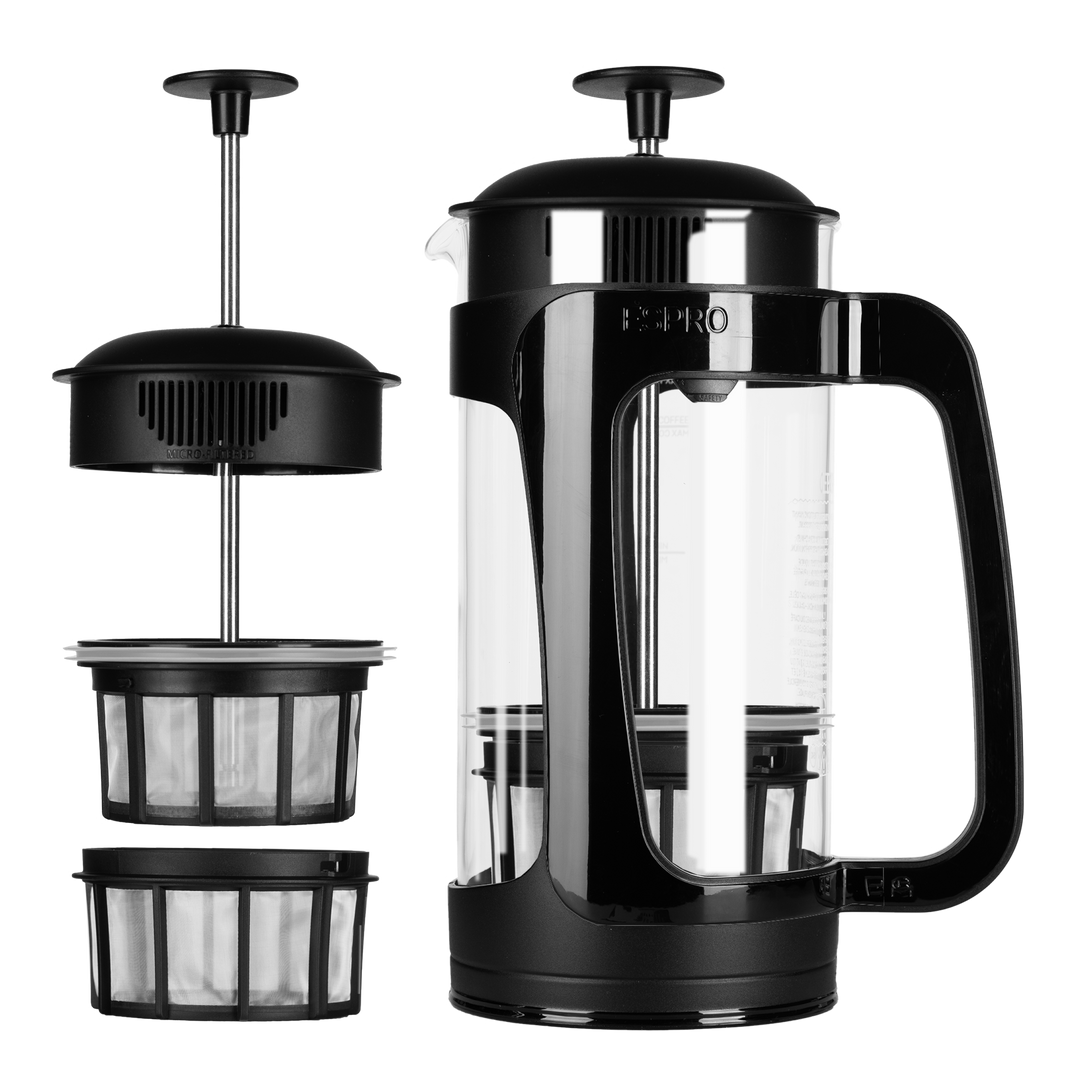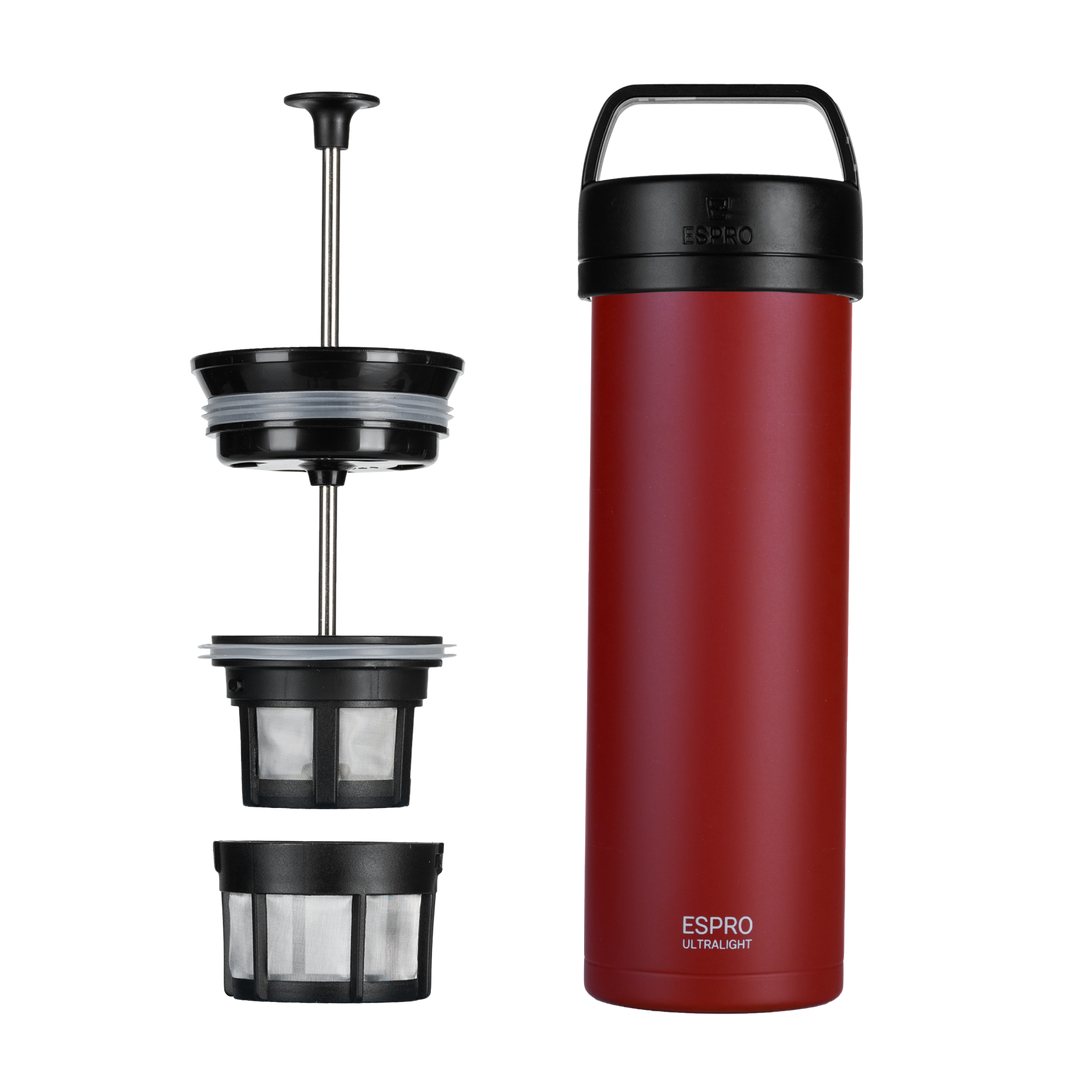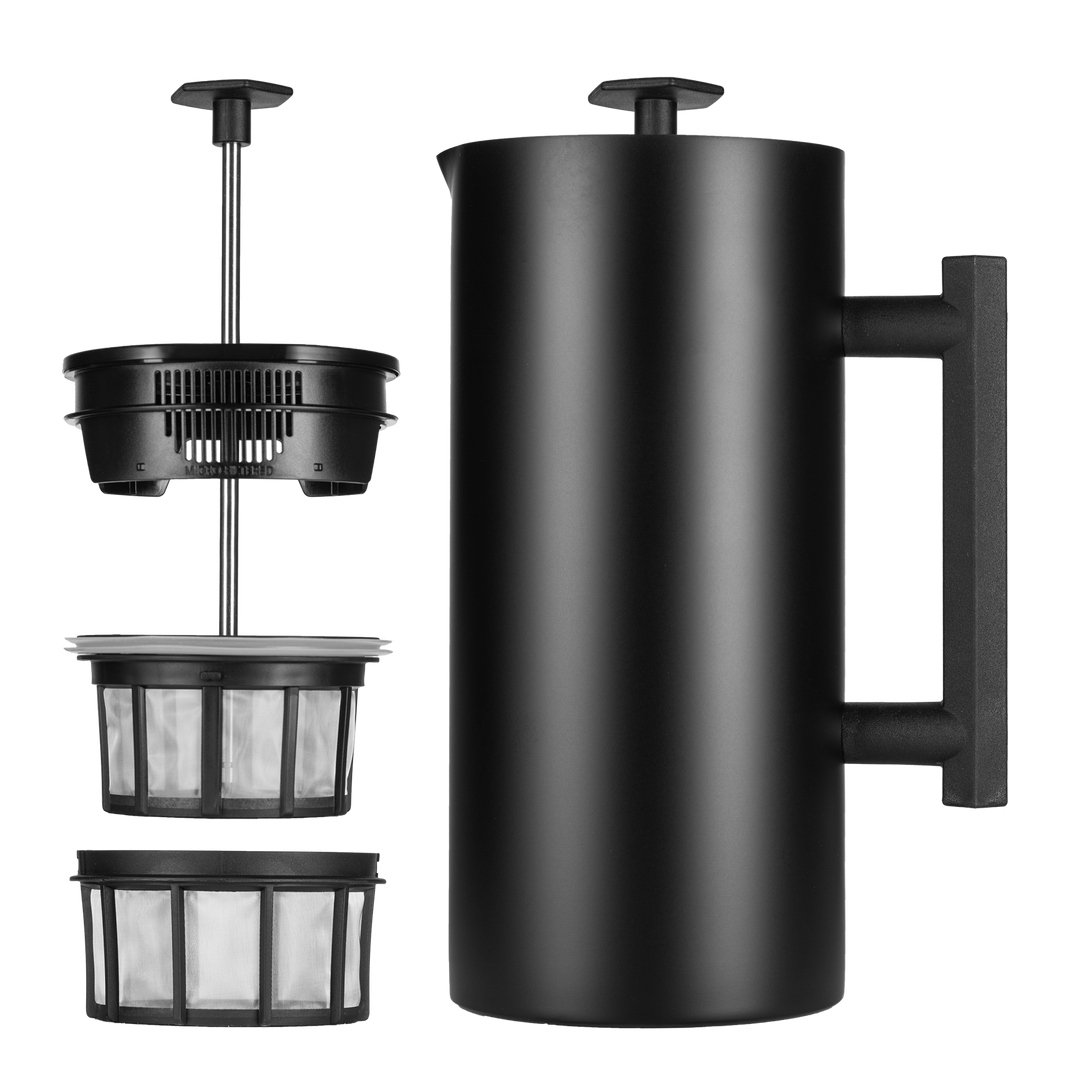Something shocking happens when you first start brewing specialty coffee at home.
But don’t worry! It’s happened to all of us.
You stumble upon a delightful little coffee shop and fall in love with their coffee. So, you buy a bag of their beans and hurry home to make a cup, only to be sorely disappointed when it doesn’t live up to your expectations.
You adjust the grind. Still not right.
You change up the recipe. Disappointing, too.
What happened to those citrusy notes the bag said the coffee would have? Why does the coffee taste dull and boring? Why can’t you make the same mind-blowing coffee you drank in the cafe?
Poor water quality is the #1 killer of coffee flavor at home.
No matter how you tinker with your brew method or recipe, you’ll always brew a disappointing cup if you’re using bad water.
That’s why we’re going to show you…
-
Why hard and soft water are bad for coffee brewing
-
The official golden standard for coffee brewing water
-
3 easy ways to filter your water for better flavor (without an expensive filter)
This could improve your coffee flavor overnight—ready to see how?
Why Does Water Matter So Much When Brewing Coffee?
Think about how coffee is made.
Beans + water = coffee.
Your coffee contains around 98.75% water and 1.25% dissolved solids (coffee particles).
The tap water in our homes contains a myriad of minerals, chemicals, and gases—the amounts of each vary depending on your location and water source. This means you can brew the same coffee with different types of water and get contrasting flavors every time.
(It’s important to note that some minerals in our water is a good thing for brewing coffee. More on that in a bit!)
With this in mind, it’s easy to see why coffee brewed with water at your local coffee shop will taste different when brewed using the tap water at your home.
Hard Water vs. Soft Water: Which is the Best Water for Coffee?
We’re sorry to disappoint you, but neither hard water nor soft water is ideal for coffee water.
Hard water tends to contain a large amount of minerals such as calcium and magnesium. These minerals are “sticky” and will latch onto certain compounds in the coffee grounds, resulting in stronger or more caffeinated brews. However, hard water also contains high levels of bicarbonate, which is responsible for highlighting the bitter notes in a coffee. Too hard, and you’ll get a bitter brew.
Hard water causes mineral build-up in coffee makers and espresso machines over time, making each cup taste a little less amazing. We suggest descaling your coffee maker every few weeks.
Hard water conclusion: Some minerals are necessary to bring out all the coffee flavors, but too many will overpower the more complex flavors, like subtle aromas and sugars.
Soft water, on the other hand, is typically rich in sodium, which is added via water softeners to remove impurities. Coffee brewed with softer water tends to taste muted since the water contains fewer minerals or “sticky” properties.
While hard water and soft water aren’t ideal for the perfect cup in the morning, chemist Christopher H. Hendon’s studies have shown that varying levels of water hardness accentuate different flavors in the cup. His work explains why the water at your house can taste wonderful with coffees from certain regions or blends while making others taste bland and muted.
Soft water conclusion: Sorry, soft water users… Hendon’s studies also discovered that extremely soft water resulted in poor extraction levels and not-so-delicious flavors.
If you have to choose one extreme, pick hard water. However, there are better ways of brewing A+ coffee with good water at home.
The Official Best Coffee Water, According to the SCA
If extremely hard and soft water results in bad tasting coffee, what type of water brews the best cup?
Those brewing specialty coffee at home should consult the Specialty Coffee Association’s water quality standards for the answer.
Through intensive research, the Specialty Coffee Association determined that water must have the following physical and chemical characteristics to properly extract quality coffee solids:
|
Characteristic |
Target |
Acceptable Range |
|
Odor 1 |
Clean Fresh/Odor Free |
|
|
Color |
Clear |
|
|
Chlorine |
None |
None |
|
Calcium Hardness |
50-175 ppm CaCO3 |
50-175 ppm CaCO3 |
|
Alkalinity |
40 ppm |
At or near 40-70 ppm CaCO3 |
|
pH |
7.0 |
6 - 8 |
Of course, water with levels in the “target” is optimal, but there’s no such thing as perfect, right? Water that lands in the acceptable range will brew fantastic tasting coffees, too.
How to Evaluate Your Water Source
For the safety of residents, cities across the US are required to publicly share information about their water quality. This means you can look up everything you want to know about the tap water in your home.
All you have to do is a quick Google search for your town plus the phrase “Water Report.” For instance, in Nashville, the 2020 Water Quality Report showed relatively high levels of sodium. This is likely due to the use of water softeners in homes and businesses around the city.
Search for your city’s water report and see what water quality information you can find. pH strips are also easy to find at your local hardware store if you want to test the water yourself.
Or, if you want to play mad scientist for a day, order a water testing kit from a pool company and discover more about what’s really in your tap water.
Once you compile your water quality information, compare the results to the Specialty Coffee Association’s standards. Does your water source fall within the acceptable range?
If so, you’re already on your way to brewing flavorful coffee every morning.
If not, here’s how to fix it.
3 Ways To Use Filtered Water for Coffee: It’s Easier than You Think
Our water sources—whether from a well or city system—contain chemicals and minerals that we don’t want to be transferred into our coffee. So, how do we get rid of them?
Through a filter!
There are three ways to get filtered water in your home.
In-Home Filter Products
The simplest and most cost-efficient way to filter your home water is through a water filtration system, like a Brita pitcher. These pitchers remove minerals—mainly calcium and magnesium—in your water to enhance the taste of your coffee’s flavor.
Filters that mount onto a water faucet are a more convenient option, though they tend to be slightly less effective than filter pitchers. Refrigerators on the market today also boast filtered water dispensers. These work well for brewing coffee, too.
However, you must remember to replace the filter when it reaches its expiration. Failing to replace the filter leaves you right where you started—brewing coffee with low-quality water.
Buy Bottled Water
Some places have off-the-charts hard water that can’t be fixed by the average water filter. If this is the case in your area, you may need to pull out the big guns.
We suggest buying reusable water jugs from your local grocery store. Spring water, if possible—that tends to be the closest to the official SCA water standards.
Pro Tip: Avoid reverse osmosis water!
Reverse osmosis water eliminates all the dissolved solids from the liquid, meaning nothing is left to interact with the flavor compounds in coffee. If you use this type of water, you’re left with a dull, muted tasting coffee. This same concept applies to distilled water, too.
Third Wave Water Is SCA Standard Water On-Demand
Instead of using a simple Brita pitcher, coffee shops use commercial-grade water filtration systems to ensure their customers enjoy the best cup of coffee possible. But customers don’t have this luxury at home.
A team of coffee pros wanted to bring this experience into the homes of customers and created Third Wave Water, a perfect blend of dehydrated minerals ideal for brewing coffee with. This blend of minerals was developed with the SCA’s water quality standards and consumer tastes in mind.
To use Third Wave Water’s products, pour the packet of minerals into reverse osmosis or distilled water and shake until dissolved. Remember, these types of water are considered “pure” and free of minerals. So, you’re starting with 100% H20 and adding just the right amount of minerals you need to brew the best tasting coffee at home or on the road.The Absolute Best Water for Coffee is Filtered Water
Brewing coffee at home is fun! It’s part of your morning routine and a relaxing way to break up the humdrum of the day. Don’t ruin these moments with bad water quality and lackluster tasting coffee.
Brew coffee with filtered water.
Your taste buds will thank you.
Your friends at ESPRO








